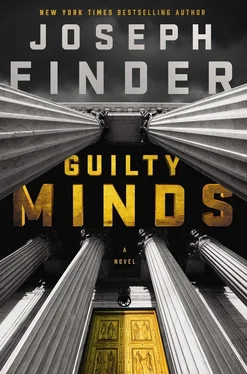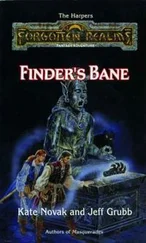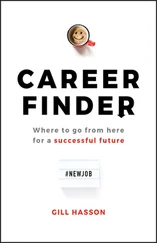Even at the dinner table of my childhood, Dad, with his slide-rule precision, could never stand to let arithmetic mistakes like this pass. I guffawed in victory.
He leaned forward, glanced uneasily at the guard who’d brought him out, standing about twenty feet away, and whispered, “What the hell do you want this time?”
“What can you tell me about Norcross and McKenna?”
“They won’t represent you. You’re not rich enough.”
“What’d they do for you? Some securities-fraud allegation, right?”
“Is that what I told you?” He smiled wanly. “I needed to find a way to funnel money to a couple of politicians without having my name attached. They took care of it. Whatever black magic they used, I was able to make a couple of, uh, gifts, off the books.”
“They’re known mostly for handling dark money, right?”
“They do whatever their clients need. They assure you that your confidential files are protected. Most firms stow old files off-site at a storage facility, an Iron Mountain. But not these folks. Everything stays on-site, under their watchful eyes. They’re very proud of their triple-locked strong room.”
I knew then what my next step had to be.
“They don’t still represent you, do they?”
“No. But if I called them up and said I needed help, they’d fall all over themselves to welcome me back.”
“Huh.” I thought a minute. Norcross and McKenna wouldn’t believe me if I pretended to be there on behalf of my father. They’d see through it too quickly.
“Why are you so interested in Norcross and McKenna?”
“I’m working on a case involving Jeremiah Claflin and a gossip website called Slander Sheet.”
He smiled his crocodile smile. “That’s you?”
“You know what I’m talking about?”
“The sainted Supreme Court justice and the chippie?”
“You get the Internet in here, I guess.”
He lowered his voice. “Amazing how far a pack of cigarettes goes.”
“I want to know who owns Slander Sheet.”
“Why?”
How much to tell him? That was always the dilemma. I didn’t trust him, didn’t trust his discretion, and I had no idea what his network was like anymore. How he got word to people on the outside. I never knew what his real, secret agenda was. The more I talked to him, the more corroded I felt.
“Someone had it in for the judge,” I said.
He ran his hand over his eyes. “No doubt.” He blinked rapidly, flecked away a few flakes of dead skin. “A man like Claflin is going to have some formidable enemies.” He raised an index finger, and now he really did look like an Old Testament prophet gone mad. “But it’s always your friends who do you in.”
He should know. Several colleagues of his whom he called friends had cooperated with the prosecutors and provided the evidence that got him locked up for so many years.
As always, my father was talking about his favorite subject: himself.
Arthur Garvin, my retired police lieutenant friend, lived in an immaculate raised ranch in the distant Maryland suburbs with a lawn like a golf course. He was in overalls and a work shirt and was resealing his driveway. It looked like he was rolling black paint over the dusty asphalt. I parked on the street and strolled across the perfect lawn and waved hello. He waved back and made some sort of oblique hand signal that I assumed meant he needed to finish what he was doing. I sat on the front porch and watched. He’d been a workaholic, like a lot of homicide detectives, when he was on the job, and now he’d probably turned that prodigious energy to weekly changing the batteries in his smoke alarms and weeding. He was a widower, I remembered.
He disappeared into his garage, which looked pristine from here, and came around to the front door from inside the house. “Sorry to keep you waiting,” he said. A strong chemical smell wafted from his clothes, from the driveway sealer. I sniffed. “That stuff can’t be good for you.”
“Good old coal tar.”
“Isn’t that stuff supposed to be toxic?”
He shrugged. He didn’t care. He led the way to a dimly lit front sitting room and we sat down.
“You look good,” I said. “Retirement is treating you well.” He still had that wispy white goatee and the steel-rimmed glasses with lenses thick as an old Coke bottle. They magnified his eyes, insectlike.
“Retirement is hell,” he said. “I’m going out of my goddamned mind.”
“No consulting gigs on offer?”
“Unless I want to be an expert witness for the defense, and you know I couldn’t stand that. Boston okay?”
“Sure.”
“You miss DC.”
“Like I miss a canker sore.”
I told him about Kayla’s death. He listened gravely, asked a few questions, shook his head. He looked amused when I told him about breaking into Curtis Schmidt’s house.
“Let me see the picture,” he said. He meant the photo of Schmidt and a buddy with a fish.
“It’s on my phone.”
I located it in the phone’s camera roll and handed it to him.
He held it at arm’s length from his face. “I see the bald guy, but I don’t see his buddy. Let me get my reading glasses.”
I took back the phone and swiped the photo and pinched and spread my fingers apart to magnify Schmidt’s friend’s face, then I handed it back.
“Oh, yes,” he said at once. “Oh, yes.” He gave a tart little smile. “Thomas Vogel.”
“You recognize the guy.”
“Vogel’s famous.”
“Oh yeah?”
“He was sort of the ringleader. Well, not sort of. He was the ringleader of the fake overtime pay scam. When he was on the force, he surrounded himself with a small group of alpha dogs, including your boy Curtis Schmidt.”
“He get forced retirement, too?”
Garvin nodded. “He was a legend in the department, Vogel was. Thought he was smarter than everybody else, and he probably was. Did undercover work in narcotics and made some prominent busts. After he was forced out, he started this interesting kind of high-end VIP protection service, called Centurions. They’re more like fixers than plain old security guards.”
“‘Fixer’ can mean anything. What do they do?”
“They make scandals go away.”
“For politicians?”
“Sure, and movie stars and rich people.”
“You know this for sure?”
“All I know is gossip. A celebrity is found with a body in his bed, they make the body disappear. Some movie star has a problem with a stalker, they take care of the problem. No restraining order needed. A call girl threatens a congressman with blackmail, they handle it. They resolve the situation without involving the courts. They make problems vanish. They don’t advertise, and they’re not in the phone book. I doubt they have a website. I don’t even think they have an office.”
“How do they get clients?”
“Word of mouth. People just know about them.”
“So,” I said, “they’re probably the ones who staged Kayla’s suicide.”
“Could be. Wouldn’t surprise me. Question is, who hired them? That’s what you really want to know.”
I looked out the window at the perfect emerald lawn, the polished ebony of the driveway. I smelled the coal tar, astringent and medicinal. There were any number of directions I could have gone from there. But it was becoming clear, at least to me, that the answer might lie in the connection between the Centurions and Slander Sheet.
And that connection, if there was a connection, would require some serious digging. It wasn’t going to be easy to find.
But I had an idea.
Thank you for making time to see us, Mr. Troy.”
I nodded, avoided eye contact, looked uncomfortable. Simon Troy was said to be uncomfortable around people.
Читать дальше












